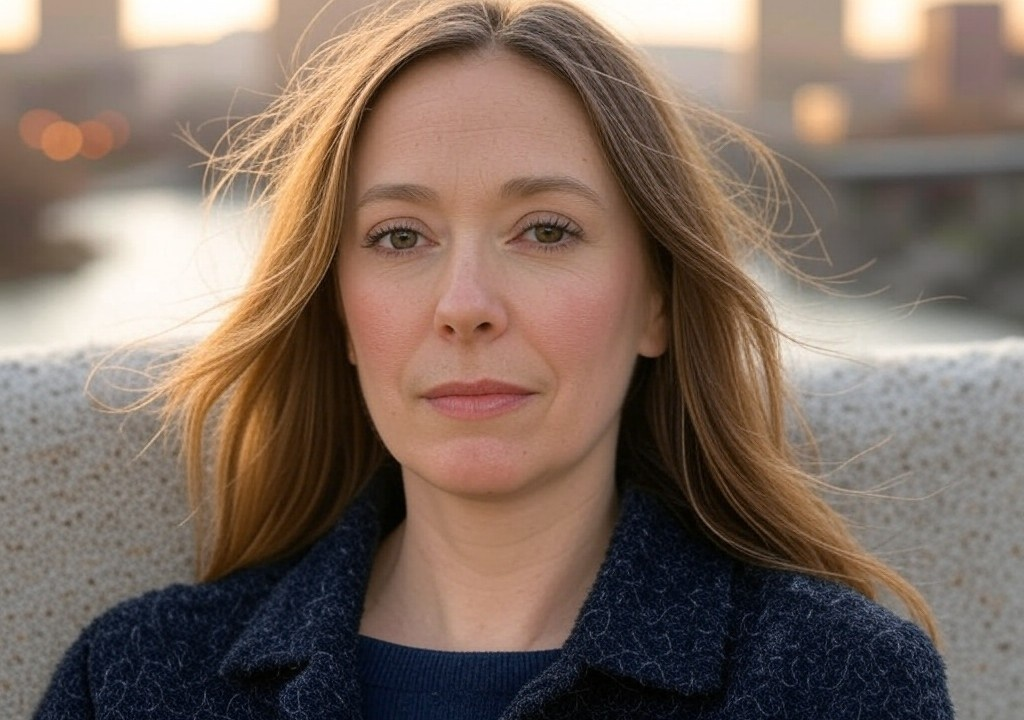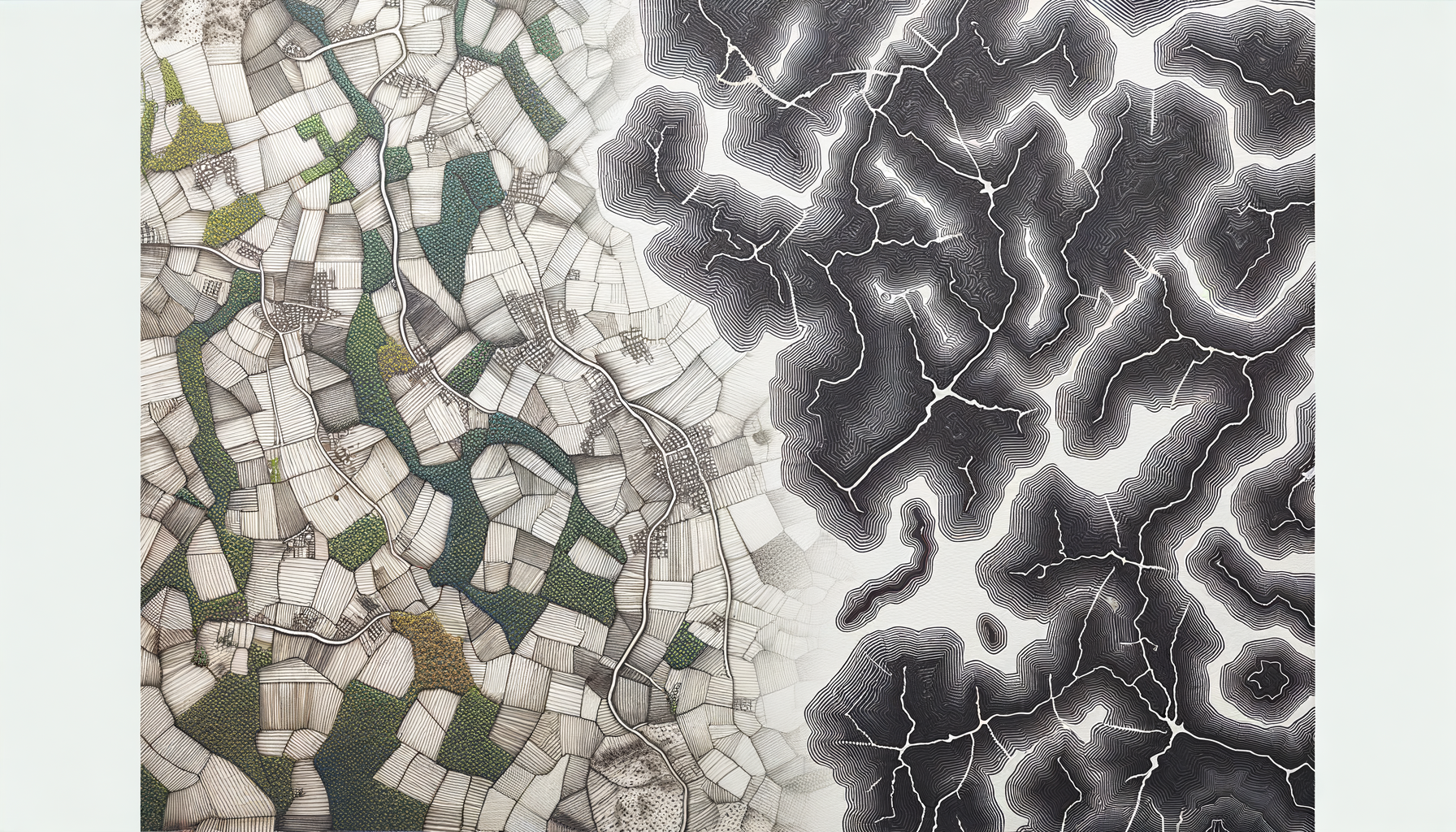The scar on my knee was earned with all the reckless bravado of an eight-year-old trying to prove she could fly. A rickety bike, a gravel driveway, and an overestimated sense of coordination left me skidding into the kind of injury that sends neighborhood kids scattering for Band-Aids and iodine. Today, the jagged little mark is still there, faint but stubborn, a battle scar from a war waged against the laws of physics.
And really, that’s what scars are—tiny memoirs written on our bodies. Some come with dramatic backstories; others sneak up on you, the way a bad haircut eventually grows out just long enough to remind you of the time you tried bangs during Mercury retrograde. Whether literal or metaphorical, scars tell our stories. They’re proof we’ve lived, loved, stumbled, and (mostly) survived.
And in the realm of dating and relationships, scars often play an unexpected role. They shape us, teach us, and sometimes remind us why falling flat on our faces—metaphorically or on actual gravel—might not be such a bad thing after all. So let’s dive into the emotional (and slightly gravel-ridden) terrain of scars and the stories they tell.
The Icebreaker Nobody Saw Coming
Ever notice how talking about scars can spark unexpectedly deep conversations? Whether you’re swapping tales with a new friend or finding yourself on a third date where nothing on the cheese board looks particularly inspiring, scars are the conversational hacks we didn’t know we needed.
Take my second date with Todd, a guy I met when his dog crashed into my knees during an afternoon on the Boise Greenbelt. (Not a meet-cute I’d recommend if you value cartilage.) Things got awkward fast—a little too much small talk and a lot of weird long pauses—but when I absentmindedly traced the scar on my knee and mentioned my ill-fated childhood flight attempt, Todd lit up. He rolled up his jeans to reveal his own scar, courtesy of an overly competitive Ultimate Frisbee league. We laughed, swapped “war stories,” and, for a moment, forgot we’d already run out of questions about favorite movies. Spoiler alert: Todd didn’t become my forever person, but he did prove that scars make excellent, if somewhat unconventional, conversation starters.
So, pro tip: If your dating banter needs a little spark, don’t be afraid to share a tale of your ill-advised adventures or emotional stings—it’s way more endearing than rehashing your last vacation itinerary.
The Emotional Kind: A Different Type of Scratch
The scars that can’t be seen? Yeah, they hit differently. These are the scars left by heartbreaks, ghostings, and the dating equivalent of being “left on read.” They may not bleed, but they sure do ache.
My Chicago stint—a heady year of journalism fellowships and winter so cold it froze my eyelashes—also brought my first big heartbreak. He was another young writer with great cheekbones and a way of quoting Vonnegut that made me overlook his inability to properly recycle. When it ended (dramatically, on a snowy bridge because of course), I carried that heartache back to Boise like excess baggage. It left an invisible mark, tucked somewhere between my ribcage and my pride. At first, I saw it as proof of failure. With time, though, I began to see it for what it was: a lesson learned.
The emotional scars we collect remind us where we’ve been—and, more importantly, what we’re capable of enduring. Here’s what these scars have taught me, delivered bite-sized for easy consumption:
- Feel All the Things: Emotional scars need air, much like physical wounds. Denying feelings or bottling them up doesn’t make them disappear; it just delays the healing. So cry in your car, scream into a pillow, or bake too many cookies. Whatever it takes.
- Don’t Rush the Glue: Emotional healing isn’t linear, and you can’t slap some Gorilla Glue on your heart. (Trust me, I tried. It doesn’t work, and it’s messy.) Let yourself stitch together at your own pace.
- Let the Story Change: Heartbreak doesn’t have to be the headline of your life—it can be a footnote. Over time, the story reshapes itself. A breakup that felt like the end of the world becomes the thing that set you up for something better.
Scars as Road Maps to Resilience
Humans are resilient creatures. Give us enough time, and we’ll stitch ourselves back together, even if the thread feels a bit frayed. It’s incredible to me how often scars—both the visible and invisible kind—serve as guideposts for growth, marking where we got knocked down and decided to get back up anyway.
One of my favorite stories about resilience belongs to my mom, who once dodged a collapsing shelf at my grandparents’ brewery but ended up with a scar just above her eyebrow. She always laughed about it—joking that, in Idaho, even furniture can’t sit still—but to me, it’s always been a reminder: resilience isn’t just about grit but humor. It’s about how we choose to narrate the scrapes and bruises life throws at us.
In dating, that resilience shows up every time we dust ourselves off and take another chance. Every awkward first date, every vulnerable confession, every moment of wondering “Is this worth it?”—it all adds up to prove that despite the scars, we still believe in the possibility.
Learning to Show and Tell
For so long, I saw my scars—inside and out—as things to hide. I covered the one on my knee beneath layers of jeans. I buried my emotional ones beneath casual indifference (or what I thought passed for it). But scars aren’t ugly; they’re real. They remind us that we’re alive. And they’re oddly beautiful when we stop hiding them.
In the world of relationships, this “show-and-tell” approach can be transformative. When I started opening up about my scars—stories of heartbreak, missteps, triumphs—I noticed a shift. People leaned in instead of stepping back. Turns out, nobody wants perfection. They want connection. Honesty. That messy, scarred, and road-worn version of you? That’s the one worth showing off.
The Takeaway
Whether it’s the scuff of gravel on your knee or the lingering pain of a love gone wrong, scars tell us a story. They remind us of what we’ve been through, but they also act as proof of what we’re made of—determination, humor, resilience, and maybe just a touch of clumsiness.
So the next time you’re staring at a scar, literal or otherwise, consider this: It’s not just a mark. It’s a map. A memory. A little bit of proof that life knocked you down, and you decided to get back up anyway. And in this big, messy, unpredictable world of dating and relationships, isn’t that the bravest thing we can do?




















